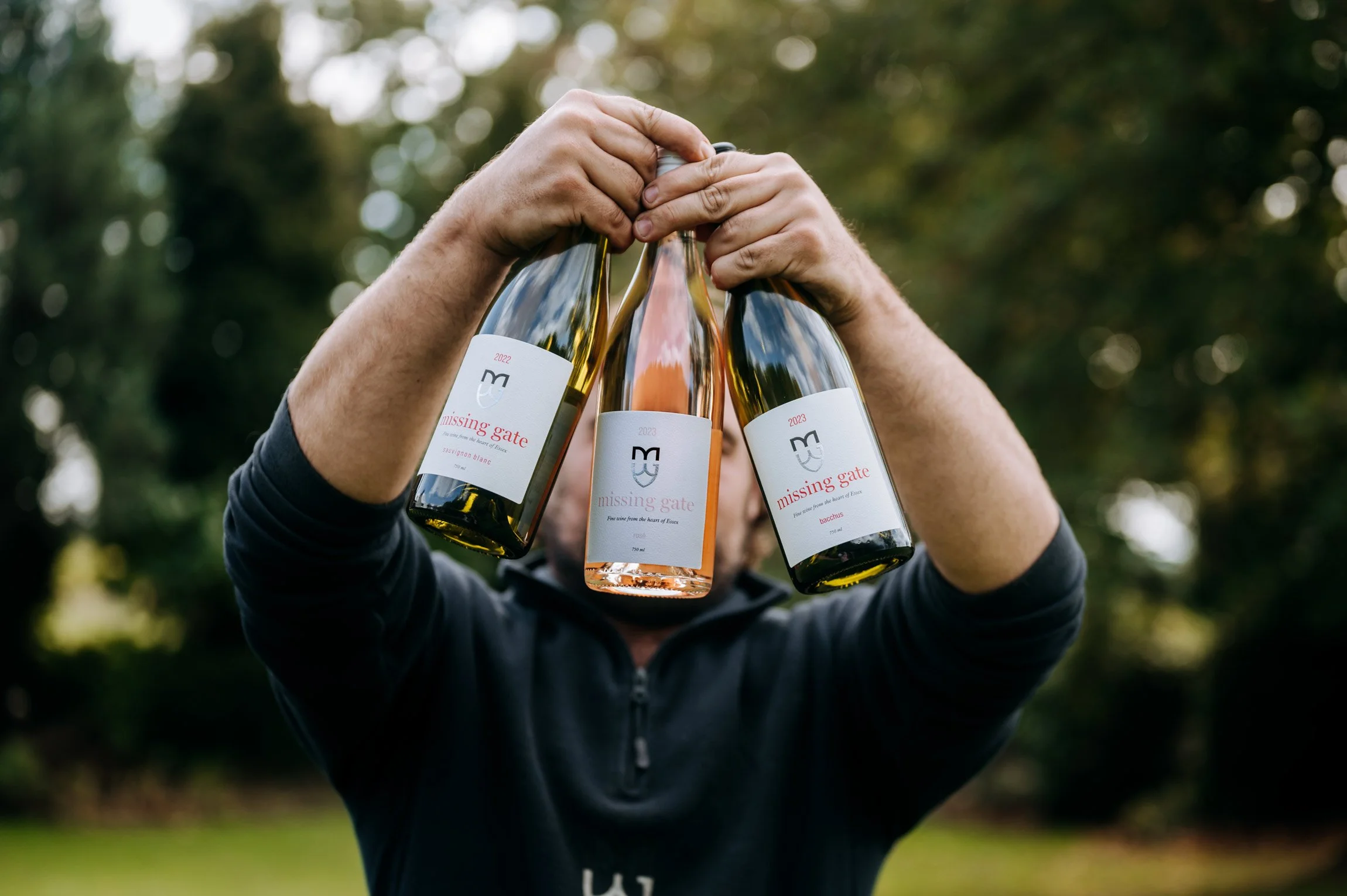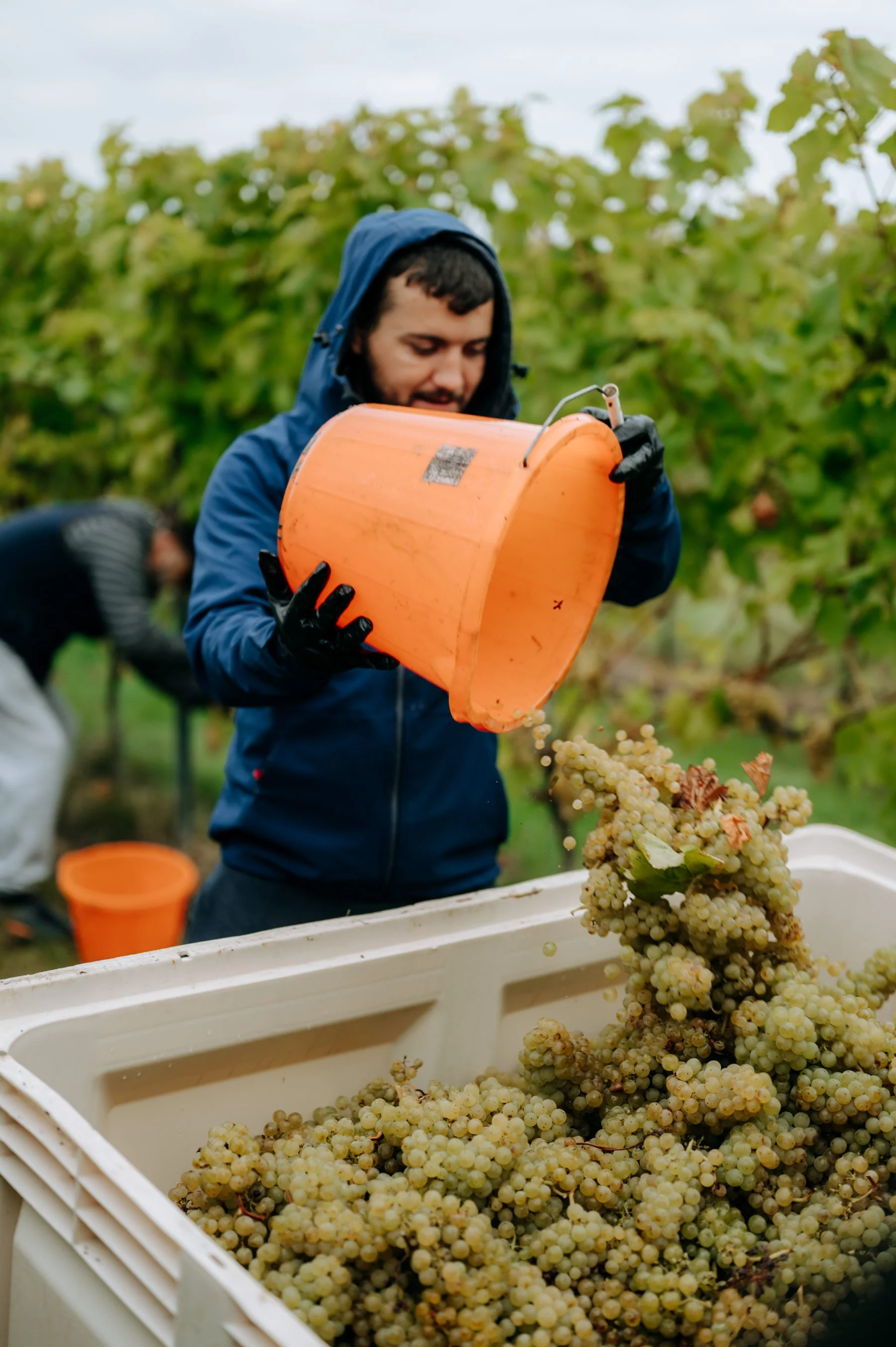
ALL ABOUT US
This Is Missing Gate vineyard
Nestled in the upper reaches of the Crouch Valley, our family-owned estate covers 400 acres—100 of which are planted with vines cultivated to exacting standards. From vine to bottle, it’s all under our watchful care, ensuring exceptional fruit quality every season.
Our modern winery and vineyard may be newly planted, but the land beneath us tells a story reaching back to Roman times. Archaeological finds such as coins, steelyard beams, and trading weights have emerged from vineyards perched above Fenn Creek—reminders of an ancient trading post once thriving in salt sales.
The Way We Work
Missing Gate is a family-run vineyard, and for us, it all started with the land. Our family has been farming here for generations, and when we decided to plant vines, we brought together years of hands-on experience with a background in food and agriculture. From day one, our aim has been simple: to grow the best fruit we can, using a mix of practical skill, close observation, and a deep respect for nature.
That way of working shapes everything we do. We trialled different grape varieties to see what would thrive in our corner of Essex, and eventually planted Pinot Blanc, Bacchus, Sauvignon Blanc, Chardonnay, and Pinot Noir. Alongside traditional farming methods, we’re always looking for better ways to work with the land, care for our vines, and produce wines that reflect where they come from. Sustainability isn’t something we’ve adopted—it’s something we’ve lived for years.
MAKing our wines
We don’t follow a template—we make wine that reflects where we are and what the season gives us. The Crouch Valley offers a rare mix of sunshine, shelter, and clay-rich soils, but English weather is anything but predictable. Each year brings new challenges—and new opportunities. That’s part of the excitement. No two vintages are the same, and we embrace that. It keeps us curious, grounded, and always learning.
Our range is shaped by this landscape and the conditions of each growing season. Pinot Blanc has become something of a signature—our 2020 and 2021 vintages were widely praised for their clarity and balance. Alongside it, we produce fresh, aromatic Sauvignon Blanc and the gently structured Two Horse Land Pinot Noir. These wines aren’t just made by us—they’re made by this place, and by the wild swings of English weather that make each harvest unique.
History in the Soil,
Wine in the Glass
Our vineyard may be young - our first block of 10,000 vines was planted in 2018—but the land beneath our feet has been in use for thousands of years. A recently discovered Bronze Age axe head adds another layer to the estate’s rich past, joining Roman coins, trading weights, and steelyard beams uncovered on the crest above Fenn Creek. This spot, once a hub for salt trade, now grows grapes - but the sense of history remains just as strong.
In the 18th century, long before vineyards took root here, farm records show the land was measured by horsepower - literally. The number of horses needed to pull a plough told you everything about the soil. Steeper, heavier ground needed more muscle, and today, that same igneous clay helps create wines with depth and complexity. Vines on the slopes yield fruit with layered flavour, while flatter areas give us lighter, brighter expressions.
These variations shape how we farm and how we make wine—and they inspire how we tell our story. Every bottle is a blend of the past and the present, a little history in every glass.
The People Behind the Wine
Missing Gate isn’t just about vines and soil—it’s about people. From the start, we’ve been lucky to build a team of passionate, hardworking individuals who bring energy, care, and expertise to everything they do. Whether it’s pruning in the frost, harvesting under pressure, or guiding guests through tastings, everyone here plays a part in shaping the wines we make and the experience we offer.
Some of us have backgrounds in agriculture, others in engineering, science, or hospitality—but we all share the same commitment: to grow the best grapes we can and turn them into wines that reflect the land. It’s a collaborative process, rooted in care, experience, and a quiet belief in doing great things properly.




